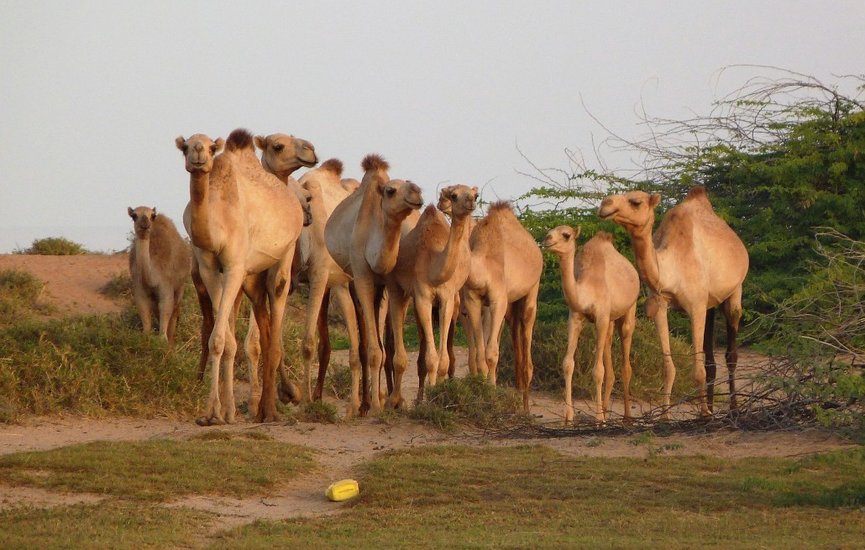MOGADISHU — Once revered as symbols of resilience and wealth in Somalia’s pastoral culture, camels are now driving a quiet revolution that could redefine agriculture in the Horn of Africa. On the dusty fringes of Mogadishu, a new vision is taking shape one where camels are no longer just beasts of burden, but the foundation of a fast-growing dairy industry.
At Beder Camel Farm, dozens of camels roam peacefully in sun-drenched paddocks while others are carefully milked under sterile conditions. Their rich, frothy yield is collected in sanitized containers, destined not for desert camps but for urban grocery shelves across the capital. Somalia is home to the world’s largest camel population over 7 million but until recently, only a small fraction of that milk ever reached the marketplace. Now, a new wave of Somali entrepreneurs is tapping into the vast, untapped potential of camel milk, breathing modern life into an age-old tradition.
Leading the transformation is Dr. Abdirisak Mire Hashi, a veterinarian and the manager of Beder Camel Farm. For him, the mission is about more than profits; it’s about preserving cultural heritage while embracing innovation. Under his guidance, each camel at the farm now produces up to 10 liters of milk per day nearly double the output of traditional herding methods. The difference lies in targeted veterinary care, enhanced nutrition, and scientific feeding practices that have replaced the wandering nomadic systems of old.
Established in 2006, Beder was among the first commercial camel dairies in Somalia. Today, it controls nearly 40 percent of the national camel milk market and employs close to 200 full-time staff, with seasonal workers brought in during peak periods. But perhaps its most ambitious leap is the creation of Somalia’s first camel milk yogurt factory. Inside the facility, workers in lab coats oversee the transformation of raw milk into creamy yogurt, which is packaged and sold under the Beder brand in supermarkets across Mogadishu.
For Kenyan food engineer Nelson Njoki Githu, who heads production, camel milk yogurt isn’t just a novelty it’s a nutritional game-changer. Unlike cow’s milk, camel milk contains lower lactose levels and higher concentrations of vitamin C, iron, and zinc, making it suitable for people with lactose intolerance and valuable in a country battling malnutrition. Nutritionist Dr. Yahye Sholle adds that the yogurt also contains essential minerals like calcium and magnesium, as well as gut-friendly probiotics, making it a powerful dietary supplement in a nation where access to nutritious food is often limited.
With growing demand, Beder plans to scale up its operations by expanding milk collection points beyond Mogadishu and training pastoralists in modern hygiene and milking techniques. Dr. Hashi believes that with the right support, Somalia can not only meet local demand but also compete on the international stage, turning camel milk into a symbol of both cultural pride and economic promise.
The Somali government is already taking steps in that direction. According to Dr. Kasim Abdi Moalim, Director of Animal Health at the Ministry of Livestock, new legislation including a Dairy Act and a national livestock development strategy is being drafted to boost investment in the sector. He notes that countries like the UAE have already tapped into the cosmetic and therapeutic potential of camel milk, and Somalia must move swiftly to harness its own advantages.
As the sun sets over Beder Camel Farm, the silhouettes of camels stretch across the dusty horizon a timeless image that now carries new meaning. From their ancient role in desert caravans to their modern presence on supermarket shelves, Somalia’s camels are once again at the center of national life. Only this time, they’re not just carrying goods they’re carrying a nation’s hope for nourishment, innovation, and lasting progress.
